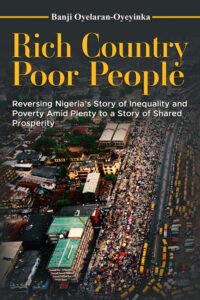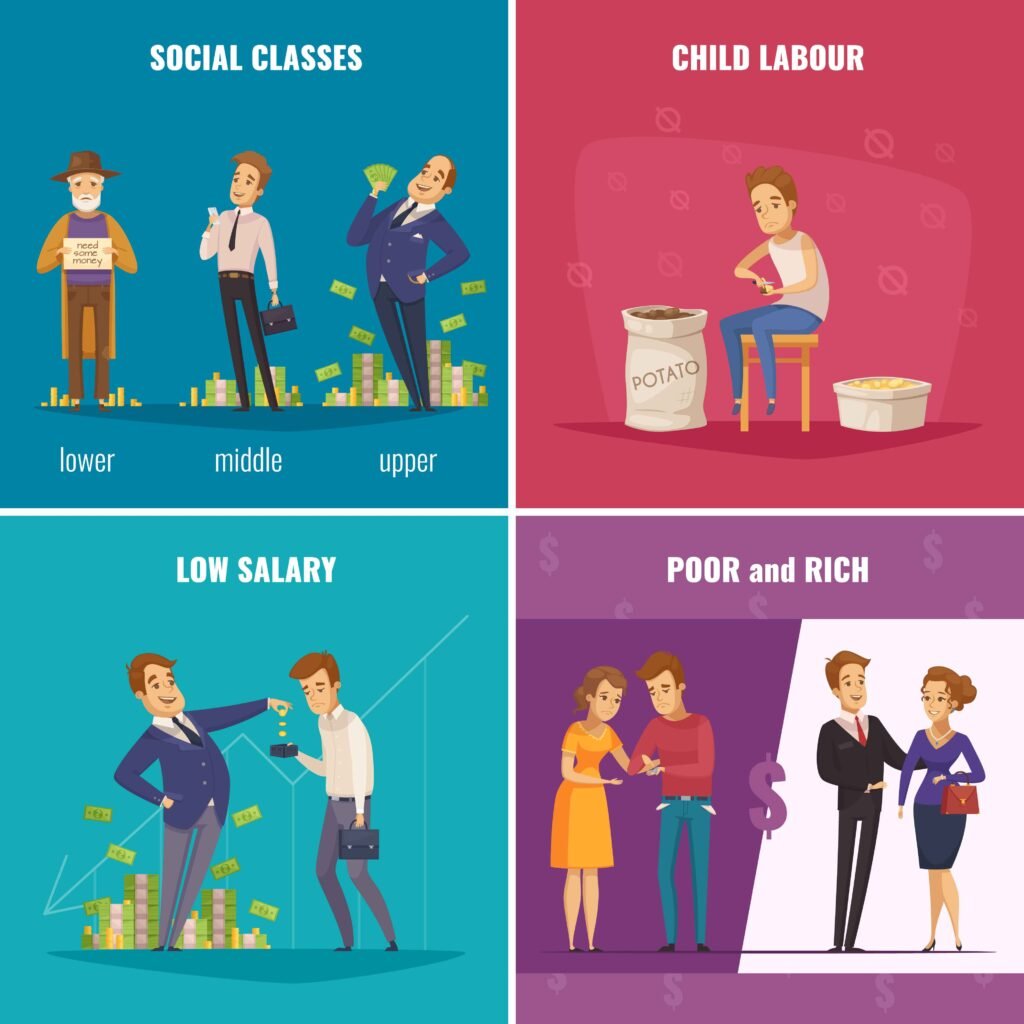In many developing nations like Nigeria, there is always a correlation between inequality and slow economic growth. Economic and gender inequalities have reached alarming levels, evident in the daily struggles faced by the majority of Nigerians.
The disadvantages brought about by these inequalities have rendered a significant segment of the population unable to contribute meaningfully to the nation’s progress. In the book rich country poor people, Professor Banji Oyeyinka gave an insight into how this inequality has eaten deep into the Nigeria system and how it can be corrected.
Types of Inequality in Nigeria

Inequality in Nigeria manifests in two main perspectives: economic inequality and gender inequality. Economic inequality refers to the disparity in wealth and income distribution among individuals or groups. On the other hand, gender inequality pertains to differences in the roles and opportunities assigned to men and women in society.
Countries with high degrees of inequality tend to experience slower growth and take longer to achieve desired development. Inequality is destructive, it impedes growth and becomes an indicator of limited social mobility and opportunity.
Inequality’s negative effects matter significantly for developing countries like Nigeria, where weak markets and ineffective governments struggle to compensate for these shortcomings through public policy. In such settings, low value-adding, informal activities dominate, leading to a rise in youth unemployment. To further explore these issues, Professor Banji Oyeyinka’s book is your best bet to understanding how a rich country suffer from abject poverty.
The Consequences of Inequality
Despite decades of industrialization and development efforts, Nigeria’s economy remains dominated by low-productivity agriculture and petty service activities. The overreliance on oil exports has hindered sector diversification, leading to a lack of dynamism in manufacturing.
As a result, the promise of prosperity and progress remains unfulfilled, and Nigeria is ranked among “fragile states” with potential for political instability. The country’s low-skilled labor sectors contribute poorly to growth, exacerbating the informal economy’s growth.

The concentration of wealth in the hands of a privileged few comes at the expense of the majority, resulting in over 90 million Nigerians living below the poverty line of $1.90 per day. The consequences of inequality are far-reaching, leading to heightened social tensions, increased crime rates, and widespread corruption. The allure of politics as a quick means of accumulating wealth contributes to the perpetuation of corruption in Nigeria.
The economic disparity leaves a large segment of the population unable to meaningfully contribute to the country’s growth. Now is time to know what equality is all about.
Economic inequality has driven a significant increase in youth emigration, as young talents seek better opportunities abroad. This mass emigration results in the loss of potential human capital that could have contributed to Nigeria’s growth and development.
Understanding Equality, Opportunities, and the Level Playing Field
Equality refers to the situation where different individuals share at least one common characteristic feature. This principle of non-discrimination forms the basis of fundamental human rights and is closely associated with justice.

Equality of opportunity is essential in contemporary theories of distributive justice, as it calls for mitigating predetermined circumstances that hinder young people’s chances of leading fulfilling lives. By providing a level playing field, equality of opportunity empowers individuals to freely choose their path, leading to fair outcomes based on abilities, efforts, and aspirations.
To further explore these issues, readers are encouraged to delve into the comprehensive insights presented in Professor Banji Oyeyinka’s book, available at Makeway books.
Causes of Inequality
Inequality in Nigeria is not a result of scarce resources but rather the misallocation of resources and corruption among the political elite.
The cost of governance in Nigeria is alarmingly high, with Nigerian lawmakers being ranked as the best-paid globally. This mismanagement of resources leaves little for essential services, exacerbating the inequality and leaving basic needs unmet for many Nigerians.
Additionally, nepotism within the political class perpetuates the cycle of inequality, as opportunities are preferentially given to their children and relatives.
Solutions to Address Inequality
To combat inequality, the Nigerian government must adopt laws and policies that bridge the gap between the rich and the poor. A concerted effort to reduce crime rates, social tension, and youth emigration can strengthen the fabric of Nigerian society. More so, managing natural resources sustainably is crucial for inclusive growth in Nigeria. By reducing reliance on oil exports and fostering economic diversification, the country can harness its resources to benefit all citizens.
Allocating sufficient funds to education, health, industry, and agriculture will play a pivotal role in revitalizing the ailing economy and fostering inclusive growth. You can read more from the insightful book, rich country poor people by Professor Banji Oyeyinka, available at Makeway books.

In conclusion, the pervasive inequality in Nigeria has hindered inclusive growth and development. The concentration of wealth in the hands of a few while the majority struggles in poverty is a situation that requires urgent attention. By implementing policies that address inequality and allocating resources appropriately, Nigeria can pave the way for a brighter, more inclusive future for all its citizens.
In conclusion, addressing inequality is paramount for achieving inclusive growth in Nigeria. By confronting issues related to opportunity, governance, and development, Nigeria can create a more equitable and prosperous society. A united effort towards a comprehensive and sustainable development agenda will pave the way for a brighter future for all Nigerians. This is why I am recommending rich country poor people to every Nigerians and African at large. The change we seek is here.

